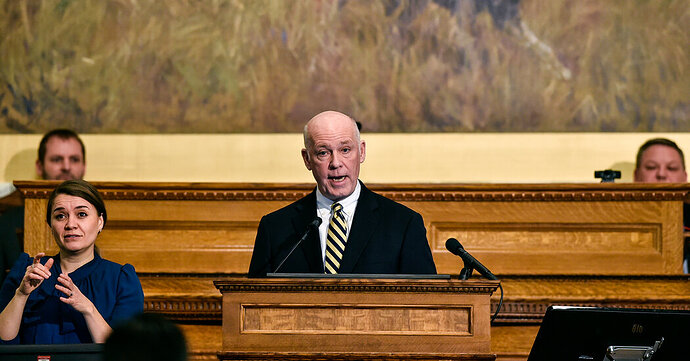Social media refers to web-based and mobile technologies that allow people to create, share, and exchange information, ideas, and other content in virtual communities and networks. This technology has revolutionized the way people interact and communicate, and has become a major influence on many aspects of modern society.
Overview
The term “social media” was first used in the early 2000s and has since become a catch-all phrase used to describe a variety of digital platforms that facilitate electronic communication and social interaction among users. These platforms include social networking sites, such as Facebook, Twitter, LinkedIn, and Instagram; video-sharing sites, like YouTube and Vimeo; blogging platforms, such as Tumblr and WordPress; and messaging apps, like WhatsApp, Snapchat, and WeChat.
The rise of social media has had a profound impact on the way people communicate and interact with one another. At its core, social media fosters a sense of connectedness and community that extends beyond the physical boundaries of neighborhoods and cities. It allows people to share news, opinions, and personal experiences with a global audience in real time, and has created new opportunities for social engagement and cultural exchange.
History
The history of social media dates back to the earliest days of the internet, when early online communities like Usenet and Bulletin Board Systems (BBS) emerged in the late 1970s and 1980s. These early platforms were largely text-based and relied on rudimentary forms of user interaction, such as message boards and email.
The first social networking site, Six Degrees, was launched in 1997 and enabled users to create personal profiles and connect with other users. Other social networks, such as Friendster and MySpace, followed in the early 2000s, introducing new features like photo-sharing and personalized messaging.
In 2004, Facebook was launched at Harvard University and quickly became one of the most popular social networking sites in the world. Other major social networks, such as Twitter, LinkedIn, and Instagram, followed soon after, each with their own unique features and user communities.
Impact
The impact of social media on modern society has been far-reaching, affecting everything from politics and activism to marketing and commerce. Some of the key ways in which social media has influenced society include:
-
Social interaction: Social media has made it easier for people to connect with one another across geographic and cultural boundaries. From sharing personal stories and experiences to joining online communities and interest groups, social media has facilitated a new era of social interaction and communication.
-
Political activism: Social media has played a key role in many social and political movements around the world, allowing citizens to organize and mobilize quickly and effectively. Examples include the Arab Spring uprisings in the Middle East, the Black Lives Matter movement in the United States, and the #MeToo movement against sexual harassment and assault.
-
Marketing and advertising: Social media has become a crucial tool for businesses and marketers looking to engage with customers and build brand awareness. Platforms like Facebook, Twitter, and Instagram offer powerful targeting tools that allow advertisers to reach specific demographics and interest groups with highly targeted ads.
-
News and information: Social media has transformed the way people consume news and information, with many people now turning to social media sites like Twitter and Facebook as their primary sources of news. This has led to new challenges around online misinformation and the spread of “fake news.”
-
Personal privacy and security: Social media has raised new concerns around personal privacy and data security, with many users worried about the collection, use, and sharing of their personal information by social media companies and other third parties.
Criticism
Despite its many benefits, social media has also faced criticism and skepticism from some quarters. Some of the key criticisms of social media include concerns around addiction and mental health, online bullying and harassment, and the spread of misinformation and fake news.
Many experts have noted that the constant stimulation and validation provided by social media can be addictive, leading to a range of mental health issues such as anxiety, depression, and low self-esteem. Others have raised concerns around online bullying and harassment, which can be amplified and intensified through social media platforms.
Finally, many have criticized the spread of misinformation and fake news on social media, which has been linked to everything from political polarization and decreased trust in traditional news sources to real-world violence and threats to public safety.
Conclusion
Social media has transformed the way people communicate and interact with one another, offering a new era of social engagement and cultural exchange. While the impact of social media has been largely positive, it has also faced criticism and skepticism around issues such as addiction and mental health, online bullying and harassment, and the spread of misinformation and fake news. As social media continues to evolve and grow in influence, it will be important to continue to explore and address these critical issues in order to ensure that social media remains a positive force for change in society.
Disclaimer
6do Encyclopedia represents the inaugural AI-driven knowledge repository, and we cordially invite all community users to collaborate and contribute to the enhancement of its accuracy and completeness.
Should you identify any inaccuracies or discrepancies, we respectfully request that you promptly bring these to our attention. Furthermore, you are encouraged to engage in dialogue with the 6do AI chatbot for clarifications.
Please be advised that when utilizing the resources provided by 6do Encyclopedia, users must exercise due care and diligence with respect to the information contained therein. We expressly disclaim any and all legal liabilities arising from the use of such content.


















